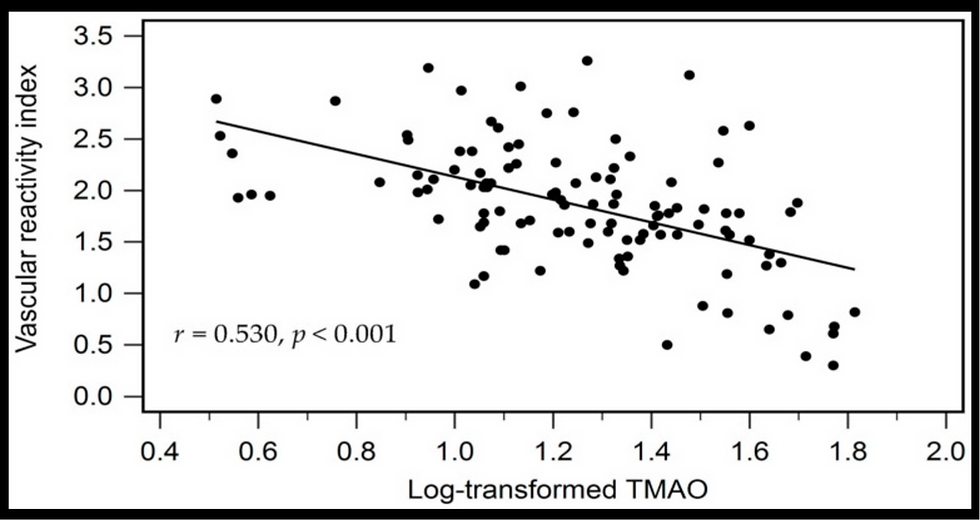Cedar Sinai Study Shows MRI Not Suitable for Coronary ED Measurement
- heartlung
- Jan 16, 2023
- 2 min read
New Study
PLoS One. 2017 Jan 12;12(1):e0169818. doi: 10.1371/journal.pone.0169818. eCollection 2017.
Cold Pressor Stress Cardiac Magnetic Resonance Myocardial Flow Reserve Is Not Useful for Detection of Coronary Endothelial Dysfunction in Women with Signs and Symptoms of Ischemia and No Obstructive CAD.
Landes S1, Dela Cruz S1, Wei J1, AlBadri A1, Shufelt C1, Mehta P1, Thomson LE1, Diniz MA2, Zhang X2, Petersen JW3, Anderson RD3, Pepine CJ3, Berman DS1, Bairey Merz CN1.
Author information
1Barbra Streisand Women’s Heart Center, Cedars-Sinai Heart Institute, Los Angeles, California, United States of America.
2Samuel Oschin Comprehensive Cancer Institute, Los Angeles, California, United States of America.
3Univerity of Florida, Gainesville, Florida, United States of America.
Abstract
BACKGROUND: Coronary endothelial function testing using acetylcholine is not routinely available, while non-pharmacological cold pressor testing (CPT) is considered an endothelial stressor. Noninvasive cardiac magnetic resonance imaging (CMRI) myocardial perfusion reserve index (MPRI) can detect coronary microvascular dysfunction (CMD). We evaluated if CPT stress CMRI MPRI could detect invasive coronary endothelialdysfunction.
METHODS: Coronary reactivity testing was performed in 189 women with symptoms and signs of ischemic but no obstructive coronary artery disease as previously described plus CPT stress. Subjects also underwent pharmacologic and CPT stress during CMRI (1.5 T). Statistical analysis comparing CPT MPRI between groups was performed by Welch`s t-test and Mann-Whitney where appropriate. Anderson-Darling test and Levene test were considered to verify the normality and homogeneity of variances assumptions. Correlation analyses between CPT MPRI and both invasive and noninvasive measures of CMD were performed using Spearman correlation.
RESULTS: While CPT MPRI correlated with pharmacological stress MPRI, it did not correlate with invasive measures of CMD including invasively measured responses to intracoronary (IC) adenosine, IC acetylcholine, CPT, or IC nitroglycerin. Additionally CPT MPRI was not significantly different between subjects with normal compared to abnormal pharm stress MPRI or normal compared to abnormal invasive CMD parameters.
CONCLUSION: Despite correlation with pharmacological stress MPRI, non-invasive CPT MPRI does not appear to be useful for detecting CMD in symptomatic women. Full-Text
See why VENDYS® the new noninvasive, inexpensive, and automated device is superior to brachial artery ultrasound imaging of endothelial function.
New Indices of Endothelial Function Measured by Digital Thermal Monitoring of Vascular Reactivity Data from 6084 Patients Registry
Morteza Naghavi1 Albert A. Yen,2 Alex W. H. Lin,2 Hirofumi Tanaka,3 and Stanley Kleis4
![Lipoprotein(a) levels predict endothelial dysfunction in maintenance hemodialysis patients: evidence from [VENDYS] vascular reactivity index assessment](https://static.wixstatic.com/media/dac531_5285607cc591409a9d83746f042af7c6~mv2.png/v1/fill/w_980,h_980,al_c,q_90,usm_0.66_1.00_0.01,enc_avif,quality_auto/dac531_5285607cc591409a9d83746f042af7c6~mv2.png)


Comments